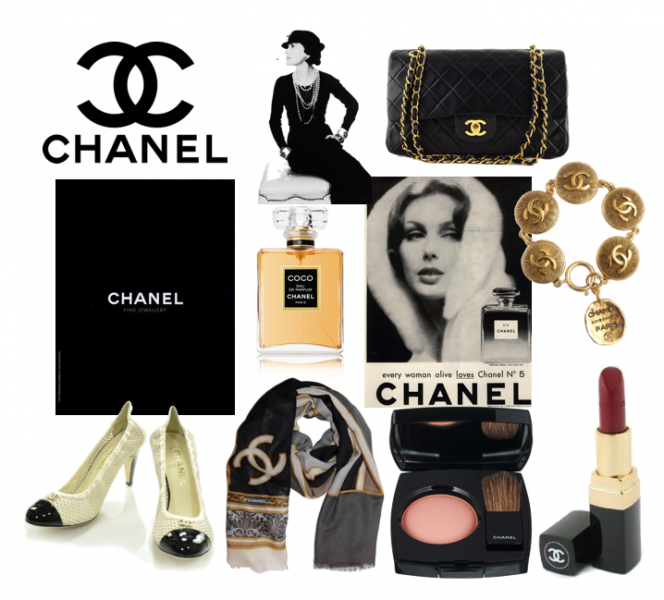Sustaining Success: Why Leading Luxury Brands Need Consulting Firms To Keep Their Edge In The Fashion Industry
The FACC-NY network is composed of a diverse mosaic of talented, experienced, and open-hearted professionals united by a desire to share their knowledge, nurture meaningful connections and succeed professionally. In this #MemberInsights series, we invite a guest member to contribute timely and relevant tips and insight for adapting your activities to overcome immediate challenges and plan for the long-term.
By Haus of Jaeger
Never has there been a time for greater integration of business and fashion. As the digital world transforms the tactile one, success in fashion can no longer be sustained by unending creativity. In building and maintaining a successful brand, analysts are just as important as artists; data are just as influential as design. The most popular brands need to constantly reform and rethink their strategies, not just on a seasonal or collection basis, not just by geographic region, but by the individual product or customer to stay on top. Even high-end brands may struggle to understand all the minutiae of emerging markets or fail to capitalize on the potential of cutting-edge technologies which can make all the difference in the highly competitive and ever-changing industry. In this regard, the services offered by consultants are exceptionally advantageous.
Advantages Of Hiring Consulting Services
Though strong, luxury brands already have well-versed, experienced professionals outlining strategies, leading sales and operations, their positions within the firm make them unable to formulate objective judgement for the brand. Therefore external consulting is not only beneficial, but necessary to grow these already eminent brands to the next level. Consultants can give brands the harsh truth, something that is difficult to do within the firm, where executives are unaware of the realities or reluctant to accept them. Consultants – especially those that are specialized – know an industry well but are without influence or bias specific to a company, allowing them to identify problems and be honest about actions/solutions necessary for continued success. Specialized consultants have the same expertise in their field as industry leaders; however, they additionally have experience working for various brands at different stages each facing diverse challenges. This gives consultants leverage in understanding what the best solutions are for each client. With exposure to a myriad of diverse case studies and scenarios, consultants have first-hand experience with what works and what doesn’t.
Going a step further, hiring a specialized, fashion consulting firm, would provide additional benefits rather than employing a traditional, large consultancy with a section on luxury apparel or retail. These fashion consultants provide expertise not in just growth strategies, market analyses, and media partnerships, but are also able to offer advice on each individual product or design. This holistic approach provides more in-depth solutions, such as managing the creative process, identifying changing aesthetics, responding to challenges with design solutions, and finding new areas of opportunity. Such extensive insight is only possible by working with fashion consulting firms and allows access to a set of skills that might not exist in house. It should be noted that experienced fashion consultants are able to adapt quickly and are used to a fast learning curve. By bringing in a specialist, companies would not have to undermine efficiency by pulling away full-time employees from their everyday tasks.
You can learn more about this topic directly by watching this week’s episode of Jaeger Show “Why Leading Luxury Brands Need Consulting Firms”, hosted by Haus of Jaeger’s Marketing Strategist Maven Enright (Northwestern University), and Financial Strategist Eli Kaufman (University of Southern California):
The Need For Diverse Perspectives
There have already been many cases where brands only work internally and end up encountering more financial hardships as a consequence. This is especially problematic in legacy luxury-brands as they are less likely to question or adapt traditional strategies that have worked throughout their history. Think back to Coach’s handbag line. Coach bags used to be coveted and were celebrated statement pieces. This was a lucrative product line for the brand. However, Coach kept all dialogue internal and limited, and decided to continue producing bags while failing to realize that their high production was flooding the market and driving down the uniqueness and exclusivity that made the bags appealing in the first place. Coach bags, for some time, fell out of favor and have only recently been making a comeback as Coach has cut back on releases thereby returning some value to their bags. A short-sighted strategy and a lack of appropriate analysis caused Coach’s handbag line to be, as Miranda aptly explains during her exposition on the color cerulean in TheDevil Wears Prada, “filtered down through the department stores and then trickled on down into some tragic Casual Corner where you, no doubt, fished it out of some clearance bin.”, an unfortunate situation that external consulting could have helped preventing.


Entire brands – not just collections – can encounter a similar fate. Consider the fall of J.Crew. The brand was immensely successful before the 2008 financial crisis, and despite clear changes in consumer behavior, the executives and designers continued their method of high-priced, somewhat ostentatious designs which fell out of favor with the populace. They continued to implement a strategy that was previously successful, but in the changing times and without external consultation they ultimately failed to change in time to save themselves from bankruptcy.Soliciting the guidance of consultants, particularly specialized fashion consultants, would have steered J.Crew to the right creative direction that could’ve maintained, if not increased, customer engagement.
Why Haus of Jaeger Is Your Best Choice
Luxury fashion necessitates innovation. The sizable influence of culture and real-world events can lead to varying styles, tastes, and sources of inspiration. The ubiquity of competition and a tumultuous market means that brands wishing to maintain their success cannot just be informed about current developments, but must also have the foresight to prepare for what’s ahead. This gives way to the very important notion that success and improvement are not mutually-exclusive. Top-performing brands may be well aware of their faults but unaware of how to expand on their strengths. Here too, fashion consultants can shine some light. Mixing and matching against traditional industry advice can sometimes show surprising results. After their purchase of Tiffany & Co., LVMH recently announced that they do not plan on micromanaging their portfolio of diverse luxury brands. Even more unusual, they are prohibiting the buildout of ecommerce platforms – a notable tactic also employed by the brand Chanel. Alternatively, they are investing heavily in CRM technologies to both boost average per-customer spending as well as raise total aggregate sales. For LVMH, implementing one widely-applicable strategy will reduce operational expenses while the qualitative and quantitative increase of sales will serve to mitigate losses from a limited online presence and thereby allow their brands to retain authenticity. This unique CRM-based approach is modeled after Japanese retail strategies where instead of one sales associate following around one customer, there are sales associates assigned to certain products or sections for which they are expertly informed, almost as if they were the manufacturer. This “expertise” is more encouraging to customers and often results in greater turnover. If every sales associate at an LVMH-owned store can be an “expert” on each customer – being able to see the customer’s spending patterns, preferences, or important dates like birthdays with a quick search on their personal device – they would be better able to sell to said customer. This brings to mind the aphorism that there is always room for improvement, even for wildly successful brands like LVMH. Growth is sustainable but not infinite. Simply because a brand is doing well does not mean there are not areas where they could implement a more effective strategy. Unconventional but efficacious policies – similar to the one detailed above – that induce substantial improvements, are difficult to identify and institute even by worldly and well-resourced brands. Consultants, however, will not just analyze which unique strategies are optimal for a certain brand, but additionally how to appropriately implement such policies into a brand’s current operational structure.
Mixing and matching against traditional industry advice can sometimes show surprising results. After their purchase of Tiffany & Co., LVMH recently announced that they do not plan on micromanaging their portfolio of diverse luxury brands. Even more unusual, they are prohibiting the buildout of ecommerce platforms – a notable tactic also employed by the brand Chanel. Alternatively, they are investing heavily in CRM technologies to both boost average per-customer spending as well as raise total aggregate sales. For LVMH, implementing one widely-applicable strategy will reduce operational expenses while the qualitative and quantitative increase of sales will serve to mitigate losses from a limited online presence and thereby allow their brands to retain authenticity. This unique CRM-based approach is modeled after Japanese retail strategies where instead of one sales associate following around one customer, there are sales associates assigned to certain products or sections for which they are expertly informed, almost as if they were the manufacturer. This “expertise” is more encouraging to customers and often results in greater turnover. If every sales associate at an LVMH-owned store can be an “expert” on each customer – being able to see the customer’s spending patterns, preferences, or important dates like birthdays with a quick search on their personal device – they would be better able to sell to said customer. This brings to mind the aphorism that there is always room for improvement, even for wildly successful brands like LVMH. Growth is sustainable but not infinite. Simply because a brand is doing well does not mean there are not areas where they could implement a more effective strategy. Unconventional but efficacious policies – similar to the one detailed above – that induce substantial improvements, are difficult to identify and institute even by worldly and well-resourced brands. Consultants, however, will not just analyze which unique strategies are optimal for a certain brand, but additionally how to appropriately implement such policies into a brand’s current operational structure.

At Haus of Jaeger, we understand these key points and the need for in-depth yet holistic strategies that are specialized to each brand. Traditional consulting firms can purchase any market research report, summarize trends, and advise on actions they deem appropriate all the while being extremely expensive. Such a strategy might work well for H&M or Zara, but high-end fashion can – to many’s surprise – be much more complex. Despite their long standing history, such consultancy firms have recently developed into speakers rather than listeners. Haus of Jaeger, instead, endeavors to listen to the specific wants and needs of your unique brand. The difference of practice lies in that for Haus of Jaeger this is not about what’s best for a brand similar to yours, it is about what is personally best for your brand. Identity is integral to premium brands and that can be easily lost in generalized solutions. Haus of Jaeger understands the holistic and nuanced interplay of business and fashion, offering tailored services and niche strategies that enhance business operations but preserve the careful and creative touch that defines each brand. There is much to gain from hiring consultants, but even more to be unlocked by the talents at Haus of Jaeger.


